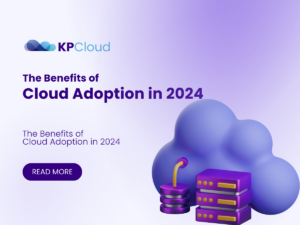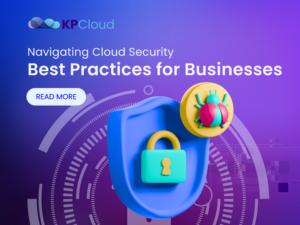Is Cloud Computing Important for AI Startups?
Cloud computing has become a buzzword in the tech industry, with businesses of all sizes adopting its practices to streamline processes and optimize infrastructure costs. But the importance of cloud computing takes on a whole new dimension for AI-based startups. With the rise of artificial intelligence and machine learning, startups in this niche face unique challenges, such as massive data processing, complex model training, and efficient deployment. Cloud computing provides the solution to these challenges in many ways. As the digital landscape evolves, the synergy between cloud computing and artificial intelligence (AI) is becoming increasingly evident. Startups, particularly those focused on AI, are gravitating towards cloud services for various reasons. But what makes cloud computing so pivotal for these new businesses? Let’s dive in.
Table of Contents:
- Introduction to Cloud Computing and AI
- Why Startups Benefit from Cloud Computing
- Cloud Computing’s Role in Accelerating AI
How AI Applications Work on Cloud Computing - Case Study: An AI Startup’s Success with Cloud Computing
- Frequently Asked Questions
- Conclusion
1. Introduction to Cloud Computing and AI
Cloud Computing is the delivery of various services over the Internet. These services include storage, processing power, databases, networking, software, and more. Instead of owning their computing infrastructure or data centres, companies can rent access to anything from applications to storage from cloud service providers. AI, on the other hand, refers to machines programmed to mimic human intelligence processes such as learning, reasoning, and self-correction. The growth of AI necessitates immense computational power, and here’s where cloud computing steps in to complement and amplify the capabilities of AI.
2. Why Startups Benefit from Cloud Computing
- Cost Efficiency: Startups often work with tight budgets. Investing in a comprehensive IT infrastructure can be prohibitively expensive. Cloud computing allows startups to only pay for what they use, cutting down on capital expenditure.
- Scalability and Flexibility: As startups grow, their computing needs change. Cloud services are designed to be flexible, allowing businesses to upscale or downscale as needed.
- Security and Compliance: Reputed cloud providers invest millions in securing their infrastructure. This ensures that startups leveraging their services are protected against various threats.
3. Cloud Computing’s Role in Accelerating AI
Cloud platforms have democratized access to the computational power required for AI tasks. Some compelling points to note are:
- Data Management: AI requires vast amounts of data. Cloud platforms provide scalable storage solutions, making it easier for startups to manage and process big data.
- Advanced Tools and Frameworks: Cloud providers often offer tools tailored for AI tasks, such as machine learning, deep learning, and data analytics. Startups can utilize these without having to develop them from scratch.
- Parallel Computing: Training AI models requires parallel processing. Cloud computing allows for efficient distribution of tasks, speeding up the training process.
4. Case Study: An AI Startup’s Success with Cloud Computing
Sentimetrics, a hypothetical AI startup specializing in sentiment analysis, faced challenges in processing vast amounts of data from social media. Their local servers couldn’t handle the workload, leading to significant lag times in delivering insights.
After transitioning to cloud computing, they experienced a transformative change:
- Storage: They could store terabytes of data without any hassle.
- Processing: With parallel computing, processing times were reduced by 80%.
- Cost: By using pay-as-you-go services, Sentimetrics reduced their IT expenditure by 60%.
Their cloud-driven infrastructure allowed them to scale rapidly, attracting bigger clients and securing a prominent place in the AI sentiment analysis market.
AI Application Cloud Computing Architecture and Its Working Mechanism
Artificial Intelligence (AI) applications are intricate systems that demand a lot from the underlying infrastructure. To understand the architecture and working of AI applications on the cloud, it’s pivotal to break down both components: the cloud infrastructure that supports these applications and how AI applications operate on this infrastructure.
1. Cloud Computing Architecture for AI Applications:
AI-driven cloud computing typically involves a multi-layered architecture:
a. Infrastructure Layer (IaaS):
At this foundational layer, the cloud provider offers raw computational resources. This includes:
- Virtual Machines: They emulate computer systems, allowing users to run applications on virtual hardware.
- Storage Services: Scalable storage solutions like databases, data lakes, or object storage are suitable for the vast datasets AI applications require.
- Networking Capabilities: Ensuring high-speed communication between resources and providing internet connectivity.
b. Platform Layer (PaaS):
Above IaaS, there’s a set of tools and services specifically designed to facilitate the development and deployment of applications.
- Machine Learning Frameworks: Tools like TensorFlow, PyTorch, or Azure’s Machine Learning Studio that help in designing, training, and deploying machine learning models.
- Data Processing and Analytics: Tools for handling and analyzing big data (e.g., Apache Hadoop and Spark).
c. Software Layer (SaaS):
The topmost layer, where actual AI applications reside. This can be off-the-shelf AI software or custom-built applications. Users can interact with these applications via web interfaces or APIs without worrying about underlying complexities.
2. How AI Applications Work on Cloud Computing:
a. Data Collection and Storage:
AI, particularly machine learning, is data-driven. Once the data is collected, it’s stored in cloud storage solutions. Cloud platforms offer vast storage capacities, ensuring AI applications have all the data they need.
b. Data Preprocessing:
Before feeding data into an AI model, it often needs cleaning and transformation. Cloud platforms provide tools for these tasks, ensuring the data is in the right format and free from inconsistencies.
c. Model Training:
Post-data preprocessing, it’s fed into machine learning models for training. Training involves adjusting model parameters to best predict the training data. This step is computationally intensive and is where the cloud’s computational power comes into play. Cloud services allow access to powerful GPUs and TPUs, which can expedite this process.
d. Model Deployment:
Once the model is trained, it’s deployed as a service. In a cloud environment, this often means encapsulating the model inside a container (like Docker) or a serverless function. It’s then exposed via an API for other applications or services to use.
e. Inference:
When external applications query the deployed model (for predictions or classifications), this is called inference. The AI application processes the input, runs it through the model, and returns the results.
f. Continuous Learning:
AI applications on the cloud can continuously learn from new data. As more data gets collected, it’s used to retrain the models, ensuring they remain accurate.
Case Study : How AI applications work on cloud computing
Here’s a breakdown of the visual:
- Start: The process begins when a user or application initiates a request.
- User Sends Request: A user or an application sends a request to the cloud for an AI service.
- Cloud Gateway: The request first hits the cloud gateway, which is the entry point to the cloud infrastructure.
- Load Balancer Distributes Request: The load balancer ensures that incoming requests are distributed efficiently across multiple servers or instances.
- AI Service/API: The request is then directed to the specific AI service or API, such as image recognition, natural language processing, etc.
- ML Model Processes Data: The AI service processes the request using a machine learning model. This is where the actual AI computations happen.
- Data Storage: The AI service might need to fetch or store data. This could be in a database or cloud storage, depending on the application.
- Results Returned to AI Service/API: Once the data is processed, the results are sent back to the AI service or API.
- Results Sent Back to User: The AI service then sends the results back to the user or application.
- End: The process concludes once the user receives the results.
This visual provides a high-level overview of how AI applications operate in a cloud environment. The exact architecture and flow can vary based on the specific AI application and the cloud provider’s infrastructure.
5. Frequently Asked Questions
- Why is cloud computing crucial for AI? Cloud provides the computational power and storage solutions essential for AI operations, especially tasks like machine learning and data analytics.
- Can startups rely on cloud providers for security? Yes, renowned cloud providers prioritize security, ensuring data integrity and protection against threats.
- How does cloud computing enhance AI’s potential? By offering scalable storage, advanced AI tools, and parallel computing capabilities, cloud platforms amplify AI’s potential.
- Is it expensive for startups to use cloud computing? Cloud services operate on a pay-as-you-go model, making them cost-effective for startups as they only pay for what they use.
- Do startups need a dedicated IT team for cloud management? While having IT expertise is beneficial, many cloud providers offer managed services, reducing the need for in-house IT teams.
6. Conclusion
For AI startups, cloud computing isn’t just an advantage; it’s almost a necessity. It simplifies data management, offers unparalleled computational power, and provides tools essential for AI processes, all while being cost-effective. As AI continues to shape the future of technology, the cloud will undoubtedly be its trusted ally.
Slug: is-cloud-computing-essential-for-ai-startups
Meta Description: Discover why cloud computing is indispensable for AI startups. Dive into the synergy between AI and cloud platforms, understand their mutual benefits, and explore a case study showcasing real-world success


